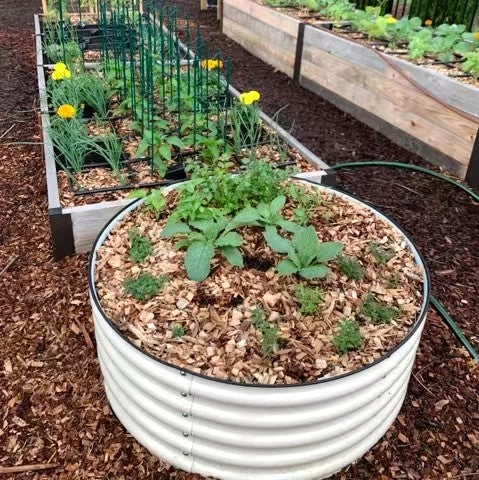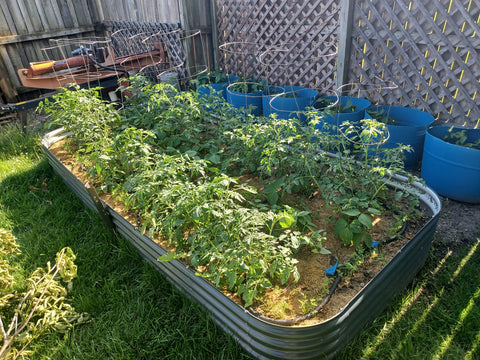The Advantages and Considerations of Growing Herbs in a Garden Bed
Growing herbs in a garden bed is a popular and rewarding hobby for many gardeners. Herbs are easy to grow, and they offer a wide range of benefits, including improving the flavor of food, providing natural remedies for ailments, and enhancing the beauty of the garden. In this article, we will discuss the advantages of growing herbs in a garden bed and some important considerations to keep in mind.
1.Advantages of Growing Herbs in a Garden Bed:
Better Soil Quality
Growing herbs in a garden bed allows you to create the ideal soil conditions for your plants. You can add organic matter, compost, and other soil amendments to provide the nutrients that your herbs need to thrive. In addition, garden beds offer better drainage, which is important for herbs that don't like wet feet.
Easy Access
When you grow herbs in a garden bed, you can easily access them for harvesting, pruning, and other maintenance tasks. This makes it easy to keep your herbs healthy and productive.
Improved Pest Control
Growing herbs in a garden bed can help you control pests and diseases more effectively. You can use companion planting, natural predators, and other organic methods to keep pests and diseases at bay.
Better Aeration
Garden beds offer better aeration than compacted soils, which is important for the roots of your herbs. With better aeration, your herbs can absorb nutrients more efficiently, leading to healthier and more productive plants.
Increased Yield
When you grow herbs in a garden bed, you can maximize your yield by planting them closer together than you would in a traditional garden. This allows you to grow more herbs in a smaller space, which is ideal for gardeners with limited space.
2.Important Considerations:
Sunlight
Most herbs require full sunlight to thrive. Make sure your garden bed is located in a spot that gets at least six hours of sunlight per day.
Watering
Herbs require consistent moisture to thrive. Water your garden bed regularly, and make sure the soil is moist but not waterlogged.
Soil Preparation
Prepare your garden bed by removing any weeds or debris and adding compost, organic matter, and other soil amendments.
Plant Spacing
Plant your herbs close together to maximize yield, but make sure they have enough space to grow and don't overcrowd each other.
Maintenance
Herbs require regular maintenance, including pruning, harvesting, and fertilizing. Keep an eye out for pests and diseases, and address any issues promptly.
In conclusion, growing herbs in a garden bed offers many advantages, including better soil quality, easy access, improved pest control, better aeration, and increased yield. However, it's important to keep in mind the considerations we discussed, such as sunlight, watering, soil preparation, plant spacing, and maintenance, to ensure the success of your herb garden.


